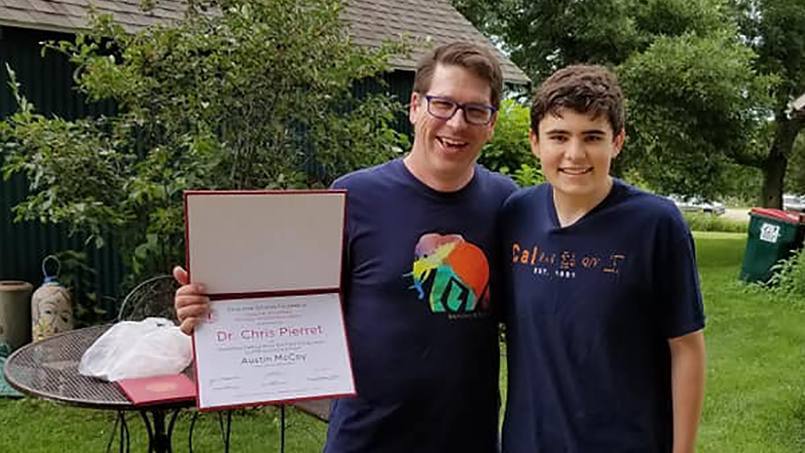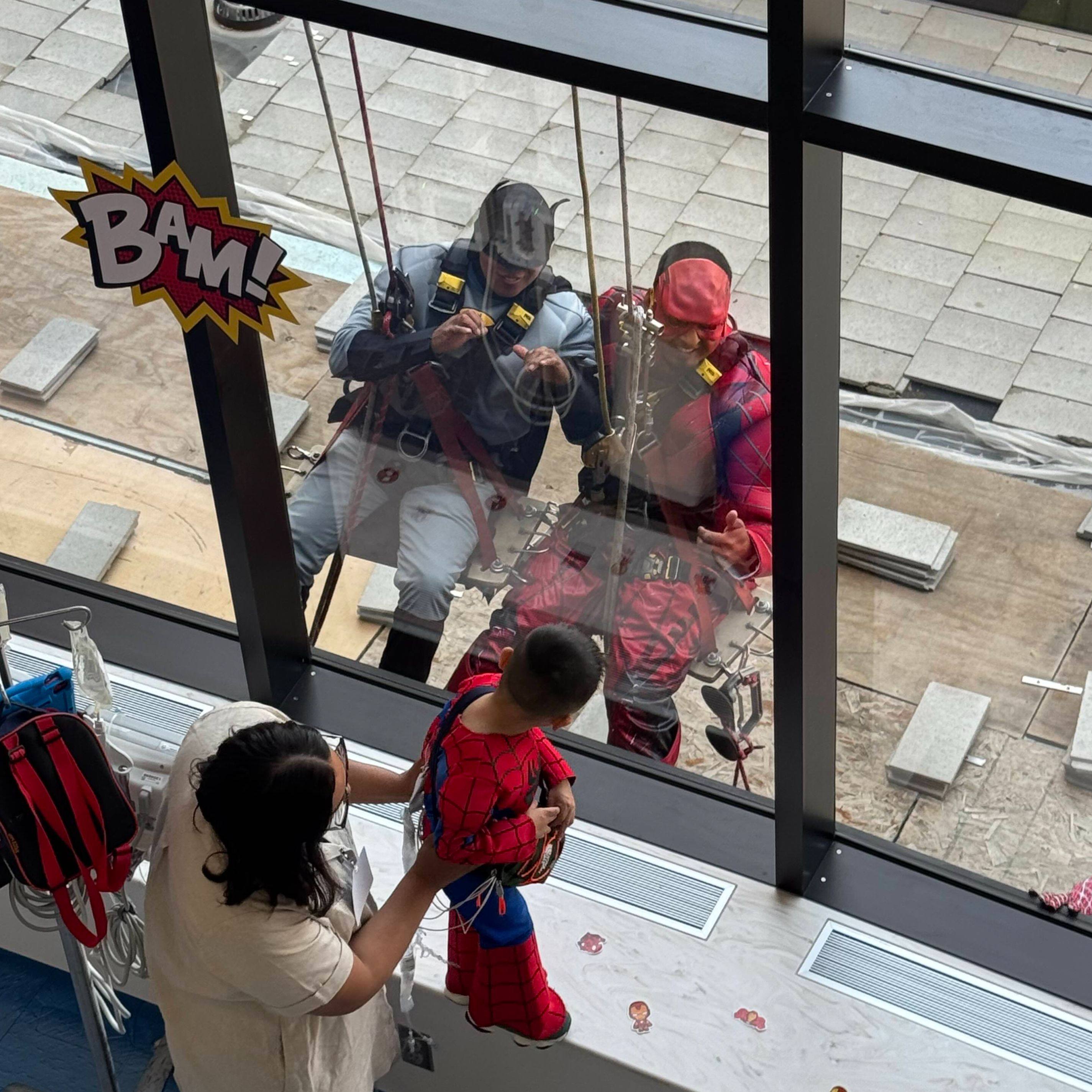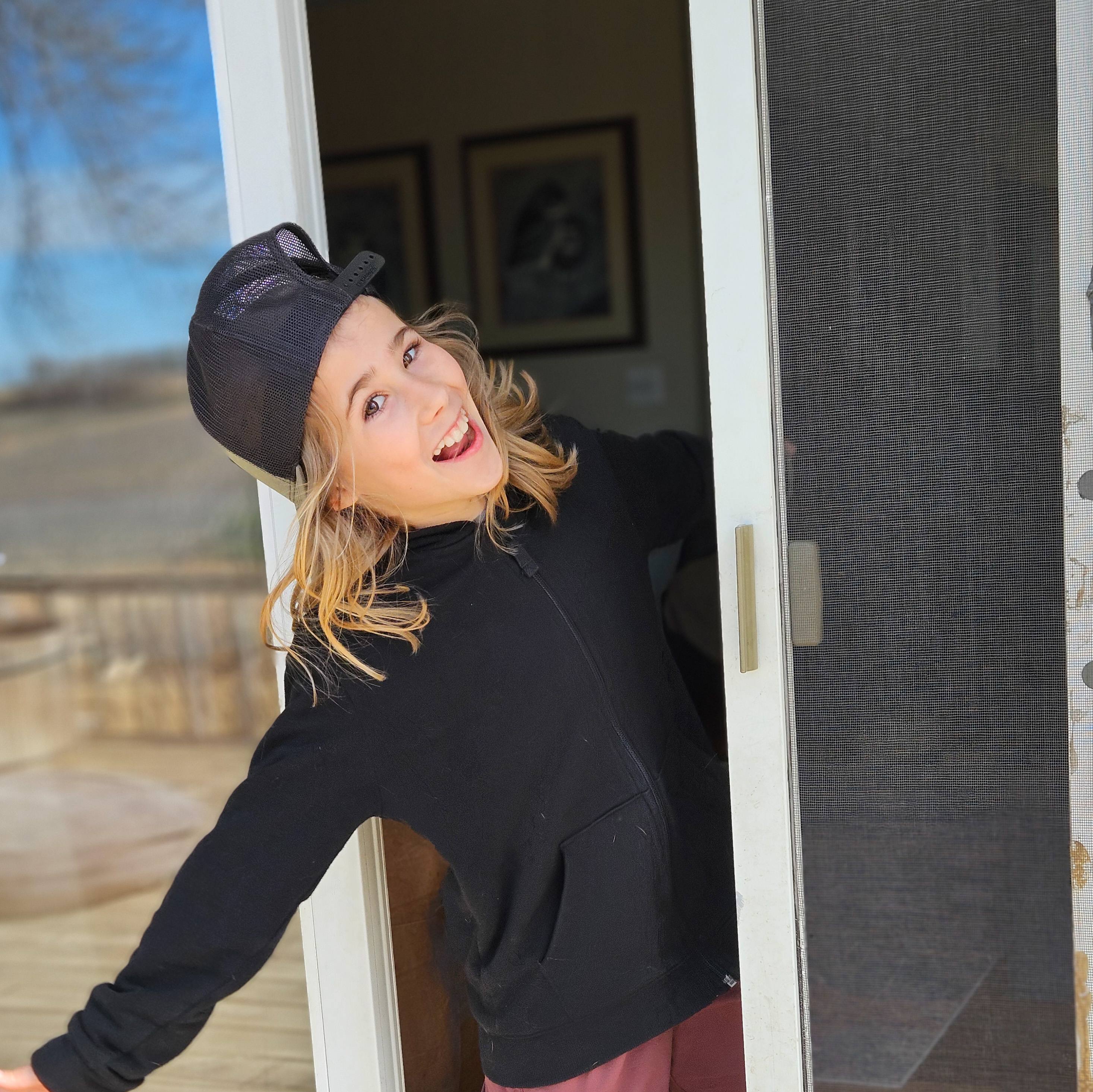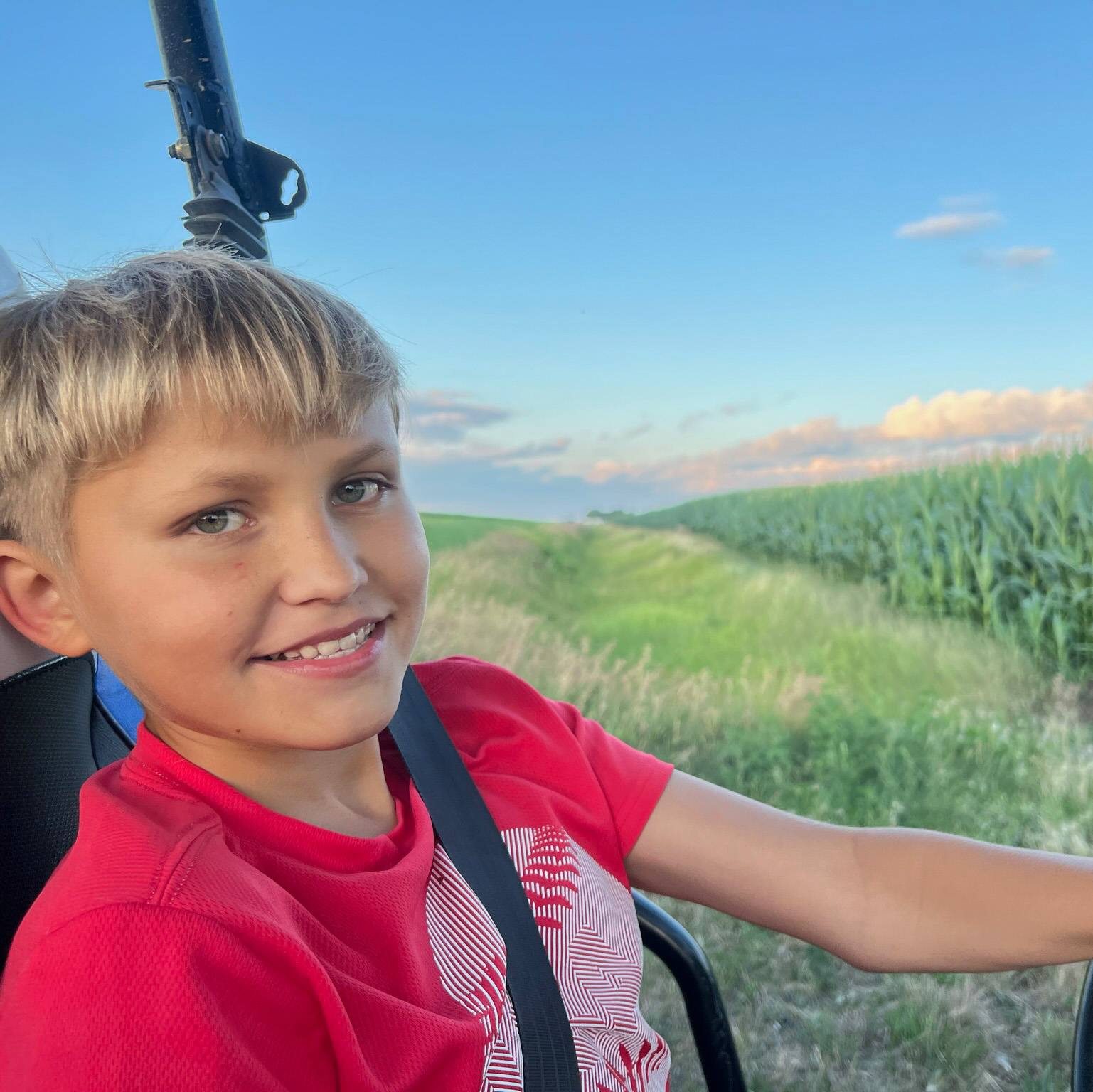-
In the Loop: Teen inventor gets national award, shares spotlight with mentor
 Four years ago, middle schooler Austin McCoy took the science world by storm. He was recently awarded for his contributions to science, and named Mayo's Chris Pierret, Ph.D., as an inspiring educator.
Four years ago, middle schooler Austin McCoy took the science world by storm. He was recently awarded for his contributions to science, and named Mayo's Chris Pierret, Ph.D., as an inspiring educator.
Austin McCoy was just 14 years old when he began making an impression on the science world. While still in middle school, he developed an innovative and low-cost disease-detection tool alongside Mayo Clinic biochemist and molecular biologist Chris Pierret, Ph.D.
In the years since, that "stripped down, portable and much cheaper version of a standard lab-issue thermocycler" has taken Austin great places and given him great things. Like top honors in a national science and engineering fair in Washington, D.C., a formal internship at Mayo Clinic, an invitation from Dr. Pierret to join him and others from Mayo Clinic on a trip to New Delhi, India, and his own TEDx talk, during which Austin breaks down his device's journey "from idea, to workbench, to kitchen counter prototype."
It was a journey that took root when Austin's middle school partnered with Integrated Science Education Outreach, or InSciEd Out, the science education program founded in 2009 by Mayo Clinic, Winona State University-Rochester, and Rochester Public Schools. Austin and Dr. Pierret met soon after, and the rest, as Austin wrote on his website at the time, is history. "He became my mentor and allowed me to come into his lab at Mayo Clinic, where he taught me how to extract DNA and how to analyze it using electrophoresis." (Funny, that sounds exactly like what we were doing in middle school.) Read the rest of Austin's story.
___________________________
This story originally appeared on the In the Loop blog.
Related Articles







